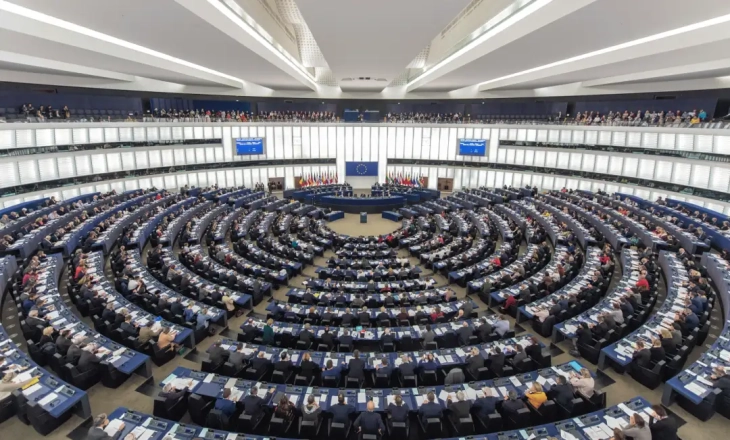European Parliament to back new team of EU commissioners
- The European Parliament is expected on Wednesday to confirm the members of the new European Commission - the EU's executive arm - for a five-year mandate likely to be marked by major economic and geopolitical challenges.

Strasbourg, France, 27 November 2024 (dpa/MIA) - The European Parliament is expected on Wednesday to confirm the members of the new European Commission - the EU's executive arm - for a five-year mandate likely to be marked by major economic and geopolitical challenges.
The European Union's legislative chamber is to vote in Strasbourg on whether to confirm the team of 26 European commissioners as a whole, which is to work under the leadership of the already re-elected European Commission President Ursula von der Leyen.
The powerful EU executive is the only EU institution that can propose new laws, which are then negotiated by the European Parliament and EU member states.
Multitude of challenges for new commission
The new commission, which is to start work on December 1, will have to face multiple domestic and global crises.
Von der Leyen's new team is to focus on economic and security issues as the bloc struggles to remain economically competitive versus China and the United States, as well as rearm in the face of Russian revanchism.
The incoming top EU diplomat, Kaja Kallas, will have to deal with stalling support for war-torn Ukraine - which is also a candidate to join the EU - and the bloc's dwindling influence on other conflicts.
Trade Commissioner Maroš Šefčovič will inherit a trade spat with Beijing over state subsidies and tariffs on Chinese-built electric vehicles, as well as the bloc's struggle to keep up with major industrial competitors.
As executive vice president for climate and competition policy, Spain's Teresa Ribera will have to find ways to stick to the bloc's ambitious climate target of reaching zero net emissions by 2050 despite a sobering economic outlook.
The start of von der Leyen's first mandate as commission president in 2019 coincided with the height of the global climate movement and produced groundbreaking climate and environmental EU legislation called the Green Deal.
Five years on, a significant sign of the bloc's changing priorities is the creation of an EU Defence Commissioner position for the first time, to be held by former Lithuanian prime minister Andrius Kubilius.
Drawn-out nomination process
Wednesday's confirmation vote comes almost six months after the European elections in June and follows weeks of political wrangling between capitals and the political factions in the European Parliament.
Von der Leyen had asked EU member states to each nominate at least one female and one male candidate for her team, but many countries defied her and put forward a single male candidate in pursuit of a senior economic portfolio in the commission.
After repeated and mostly unanswered pleas to capitals to nominate more women, von der Leyen in September presented a team of 10 female and 16 male commissioner designates to the European Parliament.
The nominations were followed by lengthy public hearings and backroom talks to secure the backing of all candidates by a majority of EU legislators.
The appointment of far-right Italian politician, Raffaele Fitto, as a commission vice president, was initially met with serious resistance from centre-left and liberal factions.
In return, conservative and right-wing lawmakers threatened to block the appointment of socialist Ribera who has been accused of failing to deal with the recent severe flooding in the Valencia region as the current Spanish environment minister.
However, last-minute negotiations between the large political groups in the European Parliament paved the way for the contested nominees to take office.
Photo: MIA archive







